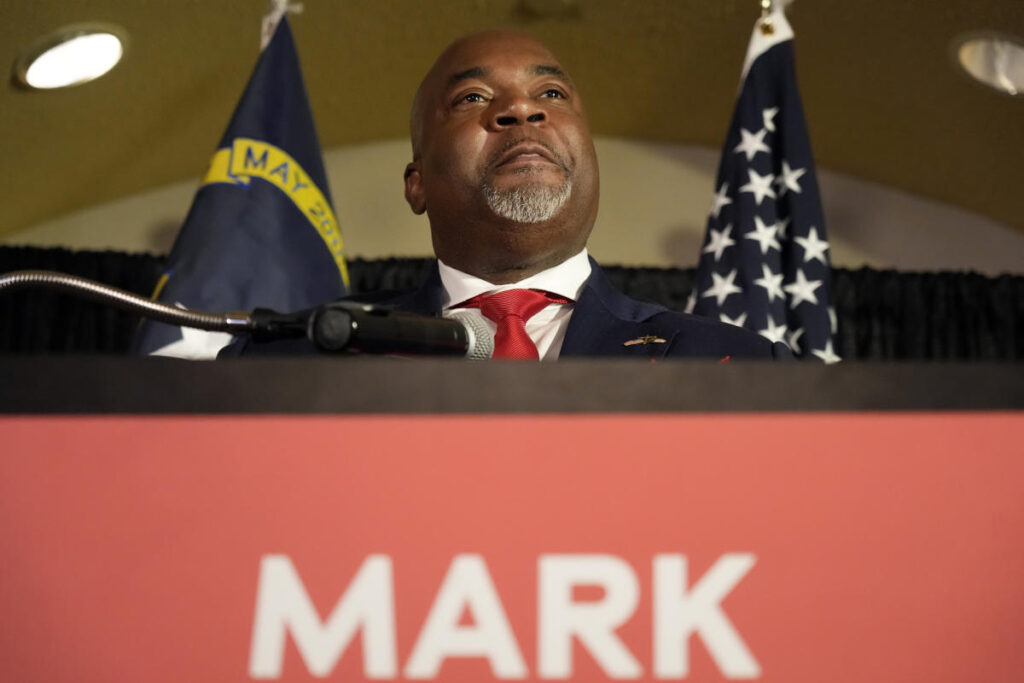CNN is asking a federal court to dismiss a defamation lawsuit initiated by North Carolina Republican Lt. Gov. Mark Robinson, which revolves around a report highlighting his past explicit posts on a pornographic website’s message board. Robinson’s lawsuit emerged after a September news article detailed controversial statements he allegedly made more than a decade ago, where he reportedly identified himself as a “black NAZI,” expressed enjoyment of transgender pornography, and made disparaging remarks about historical figures such as Adolf Hitler, Barack Obama, and Martin Luther King Jr. Robinson, who recently ran for governor and lost by a significant margin, insists he did not author the posts cited in the CNN report. His lawsuit was filed in October and comes just before the early voting period for the election.
In its motion for dismissal, CNN argues that Robinson’s claims lack substantial evidence, asserting that he failed to demonstrate that the network acted with actual malice, which is a necessary element for a defamation claim made by a public official. CNN’s attorney, Mark Nebrig, stated that Robinson’s presumption that he was the victim of a hacking operation capable of fabricating the posts is not only implausible but also absurd. The crux of the legal argument revolves around the standards that public figures must meet in defamation cases, wherein they must show that the media outlet knew the statements were false or had doubts about their truthfulness at the time of publication.
The report cited by CNN tied Robinson to specific usernames and personal details on the NudeAfrica site. The journalists conducted thorough investigative work to verify Robinson’s connection to the posts, correlating various identifying factors such as usernames, an email address, and even personal background details. For instance, they found similarities in language and figures of speech between Robinson’s social media and the posts from the message board, lending further credibility to their claims. CNN’s attorneys emphasize that the network took significant care to confirm the authenticity of the information before publishing, thus lacking any intent to mislead.
Robinson’s political career, which has previously been marked by controversial and inflammatory comments on issues such as LGBTQ+ rights and abortion, faced a considerable setback following the CNN report. The fallout from the article was swift; many of his campaign staff resigned, and advertising support from major political organizations ceased. Furthermore, he experienced distancing from prominent Republican figures, undermining his candidacy for governor, as he subsequently lost to Democratic challenger Josh Stein by nearly 15 percentage points, marking a significant defeat.
In addition to CNN, Robinson’s lawsuit also encompasses claims against Louis Love Money, who alleged in public assertions that Robinson had frequented a porn store during the 1990s, where he claimed Robinson purchased adult films. Robinson has denied these allegations. Money has since filed his motion to dismiss the related state lawsuit, but CNN has opted to move the case to federal court. They assert that the federal venue is appropriate due to the interstate nature of the case, involving a North Carolina resident and a Georgia-based company while also maintaining that Money’s claims are separate from those against CNN.
Overall, the legal battle between Robinson and CNN illustrates broader implications about the intersection of public figures, media accountability, and the challenges in proving defamation. As the court reviews CNN’s dismissal motion, the outcome may set precedents regarding how media organizations verify controversial claims and the extent to which public figures can challenge those narratives in the courts. With ongoing scrutiny of Robinson’s conduct and statements, his future in North Carolina politics remains uncertain as he prepares to leave office at the end of the year.

